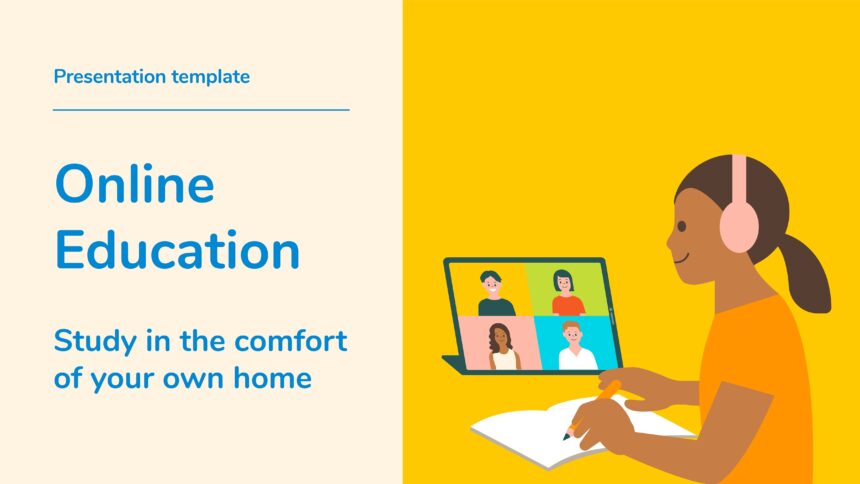The digital era has revolutionized education, and nowhere is this transformation more evident than in the booming popularity of online courses. What started as a novel idea to make learning accessible from any corner of the globe has blossomed into a vibrant ecosystem that not only delivers knowledge but also equips learners with real-world skills and fosters genuine human connections. As the world embraces this shift, millions of students, professionals, and lifelong learners are discovering that online courses are more than just videos on a screen—they are gateways to personal and professional growth.
The convenience and flexibility of virtual learning platforms have opened doors to people who previously struggled to fit traditional education into their busy lives. Parents balancing childcare, full-time workers seeking career advancement, and even retirees exploring new interests can all find courses tailored to their schedules and goals. This democratization of education is reshaping how skills are acquired, allowing learners to customize their own paths at their own pace.
Yet, beyond the practical benefits, the social dynamics of online courses are evolving. Once criticized for fostering isolation, virtual classrooms are now hubs of collaboration and networking. Learners engage in discussions, group projects, and peer feedback, building communities that mirror, and sometimes surpass, the connections formed in physical classrooms. This dual focus on skill-building and social interaction is redefining the value proposition of online education.
Bridging the Gap Between Theory and Practice
One of the most significant challenges in traditional education has always been translating theory into practice. Students often find themselves memorizing concepts without understanding how to apply them in real-world scenarios. Online courses are increasingly addressing this gap by integrating project-based learning and interactive elements that simulate actual work environments.
By providing hands-on experiences through virtual labs, case studies, and real-time problem-solving, online learning platforms help students develop competencies that employers value. For example, coding bootcamps immerse learners in live coding sessions where they build functional applications, while marketing courses might challenge students to design and execute social media campaigns. These practical components not only enhance comprehension but also prepare learners to enter the workforce with confidence.
Additionally, many online courses collaborate directly with industry leaders and companies to ensure their curricula remain relevant and up-to-date. This alignment with market needs means learners are acquiring skills that match the evolving demands of their professions. Certifications earned through these courses often carry weight with employers, providing a tangible demonstration of capability.
Cultivating Connections in Virtual Classrooms
Contrary to early misconceptions, online courses have proven capable of fostering meaningful human interactions. Modern platforms are equipped with tools such as live video sessions, breakout rooms, discussion forums, and collaborative document editing, enabling rich communication among participants.
Instructors play a crucial role by facilitating discussions, encouraging questions, and providing personalized feedback. Many courses also feature peer review systems where learners critique each other’s work, promoting active engagement and deeper learning. These interactions build a sense of belonging and accountability, motivating students to stay committed and perform their best.
Moreover, the diversity of online classrooms, often drawing students from across the globe, enriches discussions by bringing multiple perspectives. Learners gain cultural insights and broaden their worldviews, an invaluable benefit in an increasingly interconnected world. Networking opportunities abound as participants exchange ideas, share resources, and sometimes even form partnerships or friendships that extend beyond the course.
Flexibility as a Catalyst for Lifelong Learning
The adaptability of online courses is reshaping attitudes toward education. Learning is no longer confined to specific age groups or life stages but has become a continuous journey. Professionals switch careers, hobbyists deepen their knowledge, and students supplement formal education—all through accessible digital platforms.
This flexibility also means learners can revisit content, practice skills repeatedly, and progress at a pace that suits their individual needs. Such personalization enhances retention and mastery. Many platforms employ adaptive learning technologies that adjust difficulty based on performance, providing customized challenges and support.
Furthermore, the cost-effectiveness of online courses compared to traditional education makes lifelong learning financially feasible. Scholarships, free courses, and payment plans broaden access, empowering people from diverse backgrounds to invest in their growth without crippling debt.
Overcoming Challenges to Online Learning Success
Despite its many advantages, online education does come with hurdles. Self-motivation and discipline are essential as learners often navigate courses independently. Technical issues, lack of direct physical interaction, and the potential for distractions in home environments can impede progress.
However, educators and platforms are addressing these challenges by designing engaging, interactive content and providing support services such as tutoring, mentorship, and community groups. Mobile-friendly platforms and offline access options further ease learning. The integration of gamification—such as badges, leaderboards, and rewards—helps maintain motivation and make learning enjoyable.
The Future of Online Courses: Integration and Innovation
The trajectory of online courses points toward greater integration with emerging technologies. Artificial intelligence (AI) is playing an increasingly important role by personalizing learning experiences, automating grading, and providing intelligent tutoring. Virtual reality (VR) and augmented reality (AR) promise immersive simulations for skills training in fields like medicine, engineering, and art.
As these innovations mature, the line between virtual and physical learning environments will blur. Hybrid models combining in-person and online elements offer the best of both worlds, accommodating diverse learning preferences. Institutions worldwide are recognizing the value of online courses, expanding offerings, and investing in digital infrastructure.
Moreover, employers are growing more receptive to credentials earned online, often partnering with platforms to create tailored upskilling programs. This collaboration between education providers and the job market strengthens the relevance and impact of online learning.
Conclusion: Empowerment Through Virtual Education
The evolution of online courses is much more than a technological shift—it represents a fundamental change in how we approach education, skill development, and human connection. By breaking down barriers of time, location, and cost, online learning democratizes access to knowledge and opportunity.
More importantly, it fosters practical skills through immersive experiences and builds authentic relationships within diverse learning communities. This dual impact equips learners not just to succeed academically but to thrive professionally and socially.
As digital education continues to evolve, embracing its potential will be crucial for individuals and organizations alike. In a world where change is constant, online courses offer a powerful tool for adaptability, growth, and connection—well beyond the screen.









